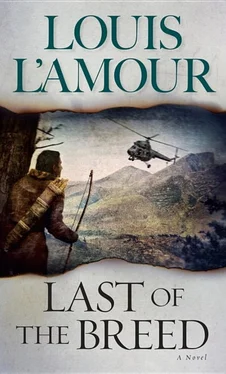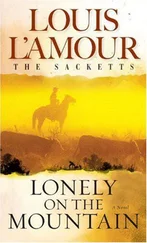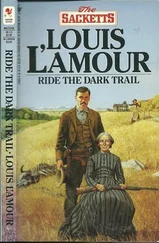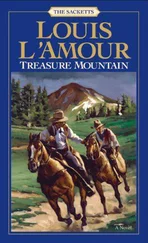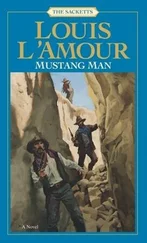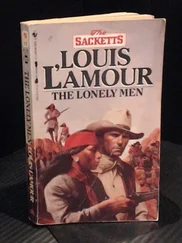Louis L'Amour - Last of the Breed
Здесь есть возможность читать онлайн «Louis L'Amour - Last of the Breed» весь текст электронной книги совершенно бесплатно (целиком полную версию без сокращений). В некоторых случаях можно слушать аудио, скачать через торрент в формате fb2 и присутствует краткое содержание. Город: New York, Год выпуска: 2010, ISBN: 2010, Издательство: Random House Publishing Group, Жанр: Триллер, Историческая проза, Приключения про индейцев, на английском языке. Описание произведения, (предисловие) а так же отзывы посетителей доступны на портале библиотеки ЛибКат.
- Название:Last of the Breed
- Автор:
- Издательство:Random House Publishing Group
- Жанр:
- Год:2010
- Город:New York
- ISBN:978-0-553-89935-1
- Рейтинг книги:3 / 5. Голосов: 1
-
Избранное:Добавить в избранное
- Отзывы:
-
Ваша оценка:
- 60
- 1
- 2
- 3
- 4
- 5
Last of the Breed: краткое содержание, описание и аннотация
Предлагаем к чтению аннотацию, описание, краткое содержание или предисловие (зависит от того, что написал сам автор книги «Last of the Breed»). Если вы не нашли необходимую информацию о книге — напишите в комментариях, мы постараемся отыскать её.
Last of the Breed — читать онлайн бесплатно полную книгу (весь текст) целиком
Ниже представлен текст книги, разбитый по страницам. Система сохранения места последней прочитанной страницы, позволяет с удобством читать онлайн бесплатно книгу «Last of the Breed», без необходимости каждый раз заново искать на чём Вы остановились. Поставьте закладку, и сможете в любой момент перейти на страницу, на которой закончили чтение.
Интервал:
Закладка:
Secretly, he was amused by the man’s daring. Once his anger at losing his rations had cooled somewhat, he chuckled to himself. Red Indian or not, the man had a flair. He glanced at Suvarov. “An interesting man, Lieutenant. Very interesting. I wish we could have talked longer.”
“Men from the lower camp are bringing up some food, sir. And some tea as well as vodka.”
“Good! And it is growing light.” He turned to look along the slope. He could see his men, in a long skirmish line, advancing up the slope and into the scattered trees. It was, he told himself again, a good exercise for them. Let them get a taste of some really rough country.
From high on the slope, Alekhin watched them with contempt. They were not going to find anything or anybody. From the beginning, he had known he would be the one to find the American. Let the others blunder about. They would never catch him. They did not even know the kind of man with whom they dealt. Still, they were near, and he would go down and have tea with them. It would save his doing it for himself. Besides, he knew where the American was and how to get him.
Using the trappers had been a good idea, but not one that would work. He knew them too well. A few might try; others would take what they were paid and do very little. Most of them admired the American and thought of him as one of their own. If they came upon him they might capture or shoot him, but not many of them would try very hard.
Nobody tried very hard to do anything these days. The trappers sold most of their furs on the black market and some of them even into China. Alekhin had done it himself. He knew what was going on better than most of the KGB, although some among them were good, and a few were very good.
By the time he reached the fire, Rukovsky and Suvarov were eating. He moved up and stood on the edge of the camp for several minutes before Rukovsky saw him. The sight of him standing there so near angered Rukovsky, who had had quite enough of people slipping into his camp without warning.
“You!” he demanded. “Who are you?” The sun was in Rukovsky’s eyes and he could see nothing.
“I am Alekhin.”
“What?” The man was a legend in Siberia. “Come in! Come in! Will you join us?”
He was a big man, Rukovsky noted, who moved like a cat. Alekhin moved up to the fire and sat down cross-legged.
“You look for the American?”
“I know where he is.”
“What? Then why don’t we take him? If you know—”
“I know. Taking him is not easy. You go with all those people and he is gone, poof. I will take him. Me.”
“Where is he?”
Alekhin jerked his head to the rear. “Up there. You go for him, your men will die. They are fools. They do not know how to search for this man.”
Rukovsky was inclined to agree, but not to admit it. “He was here this morning, early.”
Alekhin’s heavy-lidded eyes stared at him. Rukovsky had an idea he had surprised Alekhin.
“He was here; had tea with us. Tied up three of my men. Then he took my packet of rations and was gone.”
Alekhin sipped his tea. Inside he was angry, coldly, bitterly angry. The American dared to do this when he was around? He would pay for that.
“I will get him,” he repeated. “I will get him soon now.”
He looked across the fire at Rukovsky. “If you follow him, men will die. Take your soldiers and go home. It will be better.”
Colonel Rukovsky’s back stiffened. “Your advice is not needed.” His tone was cold. “If you expect to take the American, I would suggest you get on with it.”
Deliberately, he turned to Suvarov and began to speak of other things. Inwardly, he was seething. Who was this buffoon that he should tell him what to do?
Alekhin ignored them. He took his time, finishing his small meal and the tea. Then he arose and without a backward glance, walked away. He did not care what they did. If men died, it was of no importance to him. By the time he had reached the forest’s edge he had forgotten them. He had not warned Rukovsky because of any humanitarian principles, simply because so many men would tramp out all the tracks, destroy what indications the American might have left.
He had been here this morning? Some sign would be left, then. He cast back and forth. He already knew the length of the American’s stride, knew some of his methods of travel. Soon he would know all. Deliberately he had waited, wanting the man to tire himself, wanting him to become overconfident and hence careless, wanting the others to drop the chase.
The American was somewhere near the head of the Indigirka or the Kolyma, and he believed the former. The canyons were excellent places in which to hide, but the man would have to eat, and if he killed for food he would leave a part of the carcass behind. That would attract the carrion eaters.
It was a wild land of broken rock, gray cascades of talus, and a few stunted trees. Alekhin paused to look down a great gash in the mountainside, a gash choked with fir trees. It was a steep descent and a harder climb back up if he found nothing or if it ended, as so many such did, in a vast drop to the canyon floor. Vainly he searched for some evidence of a man’s passing. He found nothing but the droppings of a mountain goat and a few patches of snow.
He looked across the canyon at a curling lip of snow below that bank he had observed earlier. Bad country, a slide poised to go with a million tons of snow, rock, and dead trees behind it. Left alone, the snow might melt off gradually, but if someone tried to cross, or if there were some sudden sound, the whole thing would come down.
He shook his heavy head. Rukovsky was a fool! He should go back to country he knew! Such a man was a danger in the mountains, to himself and to others. Alekhin did not care about the others as long as he was not one of them. He did not like Rukovsky. Too smart, too efficient, one of those officer and gentleman types. He liked none of them, but he preferred to work with Zamatev. The man was cruel, ice hard, and ruthless. Alekhin did not like him, either, and it would be only what he deserved if the American turned around and went back to find and kill him.
Zamatev had said he was coming out to take personal charge. The fool! What could he do? Take charge of what?
Yet Alekhin knew that Zamatev had made a sudden flight to Moscow and back. He had returned bursting with confidence. Shepilov was to be called off, told to return to things that concerned him. Zamatev and the GRU would handle the American.
As if they could!
Alekhin paused. A pebble, pressed into mud when it was wet, had been kicked from its socket in the long-dried mud. Something or somebody had passed this way. If it was the American it must have been done at night when he was moving fast. It was unlike him to leave such an indication.
Pausing, Alekhin looked carefully around. A dozen times he had come upon traps left for pursuers, and he had seen several men die from those traps. Others had been crippled, temporarily at least.
Nothing seemed wrong, yet he was wary. With this man you made only one mistake.
He heard the footsteps behind him and muttered angrily. How could he accomplish anything with those fools tramping around over the mountains?
It was Rukovsky again. “We’re making a sweep of this slope, Alekhin,” he said. “If we find anything we will call you at once.”
“You?” Alekhin demanded rudely. “What could you find?”
Colonel Rukovsky controlled himself. “We might find a great deal. A hundred eyes are better than two.” He pointed. “I’ve started a patrol on the other wall of the canyon. We’re right here where it begins, so I had them cross to the other side.”
Alekhin looked across the canyon. A thin gray line of men walked in single file and then, as he watched, spread up the steep slope in a skirmish line, to cover everything.
Читать дальшеИнтервал:
Закладка:
Похожие книги на «Last of the Breed»
Представляем Вашему вниманию похожие книги на «Last of the Breed» списком для выбора. Мы отобрали схожую по названию и смыслу литературу в надежде предоставить читателям больше вариантов отыскать новые, интересные, ещё непрочитанные произведения.
Обсуждение, отзывы о книге «Last of the Breed» и просто собственные мнения читателей. Оставьте ваши комментарии, напишите, что Вы думаете о произведении, его смысле или главных героях. Укажите что конкретно понравилось, а что нет, и почему Вы так считаете.
